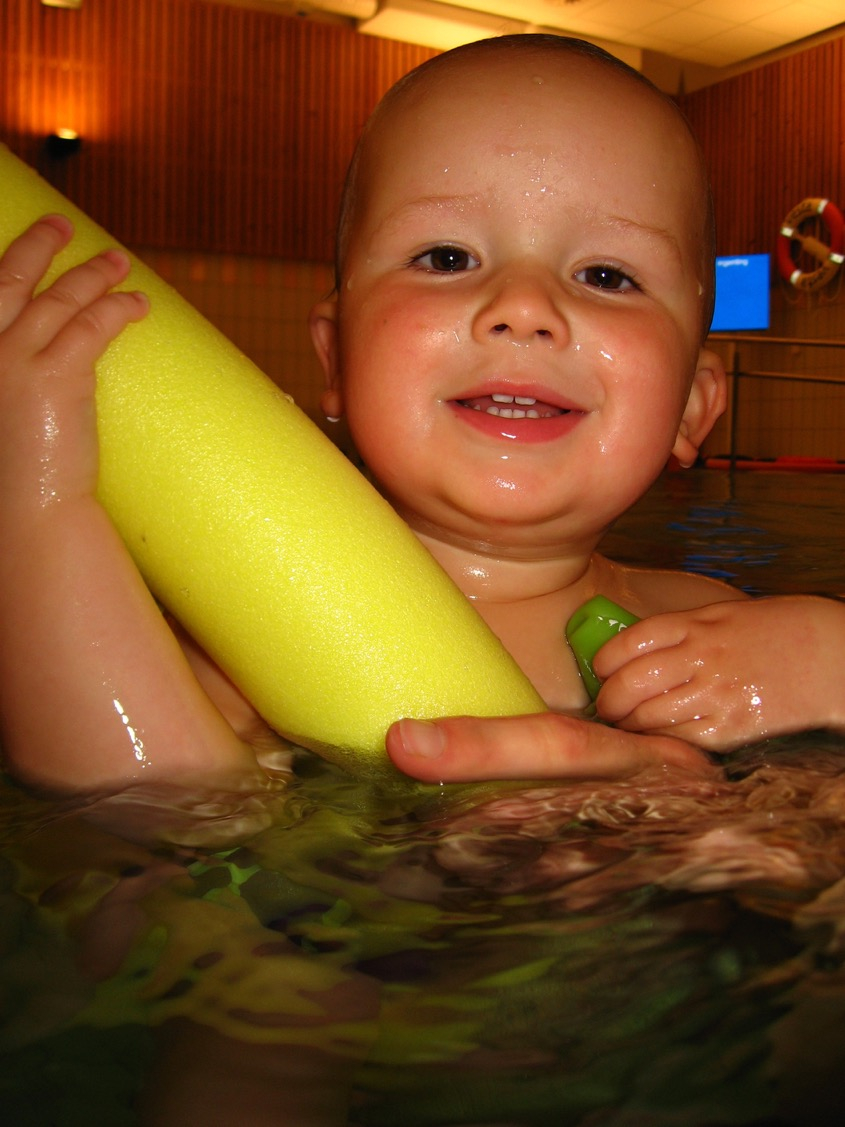Babies benefit from early water lessons

Caroline Robins and her 9-month-old baby Hannah swimming in Doncaster. Picture: Alex Coppel Source:Herald Sun
VISIT any swim school or local pool and youll see dozens of happy babies and parents splashing around having fun.
But they are also learning the basic skills that could one day save their life.
Those games, songs and splashes all have a much deeper meaning and as well as being the building blocks to important water skills, they also provide a great bonding experience for parent and child as they learn a new skill together.
Formal water play and swimming classes for infants generally start when babies are four to six months old, but teaching babies to swim is a process that can begin almost from birth.
In the bath at home, parents can use a cue such as name, ready, go before gently pouring a cup of water over babys head and face and praising them.
Babies have a natural reflex that helps them hold their breath under water a reflex that generally disappears at about six months old.
Once they start swimming lessons, that cue is then used when they are submerged, and even young babies learn they need to hold their breath.
Experts say babies who swim from an early age are relaxed and confident in the water and avoid the emotional stress that may come when starting later.
In infant swimming lessons, the focus is on play, water familiarisation and water-safety skills.
Teaching water survival is so important, even with babies, says Johanne Keesman, from the Paul Sadler Swimland chain.
Even babies sitting on the side of the pool do a safe entry and learn how to hold on to the side and climb out. But most of the water safety skills are so subtle they dont realise.
As well as teaching vital skills, swimming offers physical, social and intellectual stimulation for babies, as well as being great exercise, helping build up an appetite and enhancing sleep.
Lessons typically focus on water familiarisation up to the age of two.
Skills include holding their breath under water; safe entry to the pool; turning in the water; holding on to the wall; blowing bubbles; and kicking, floating and treading water.
In 2009-10, 56 children under 17 drowned in Australia; 59 per cent of those children were under five.
For every drowning death, three children were admitted to hospital after immersion.
While some argue that a child who has swimming lessons may become over-confident in the water, research shows that formal swimming lessons reduce the risk of drowning in children aged one to four years by 88 per cent.
And in baby and toddler swim classes, water-safety rules are reinforced every week, including not going near the water without an adult.


